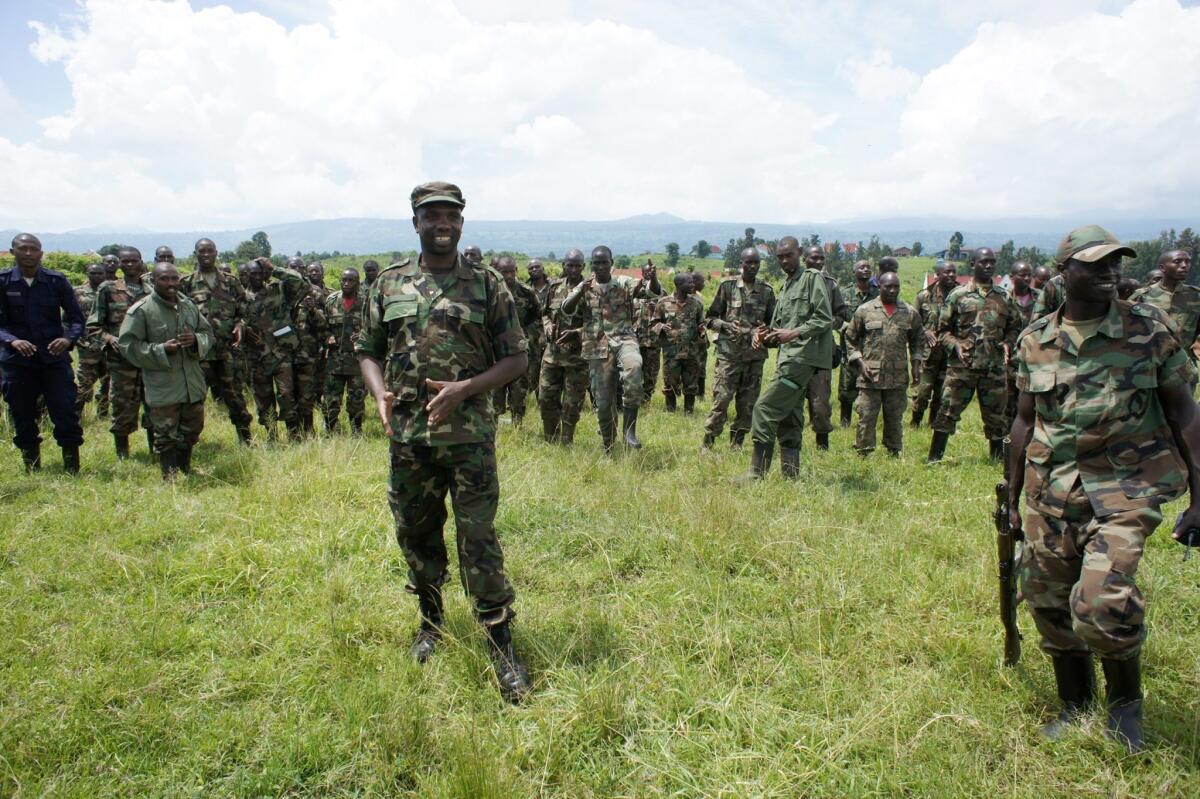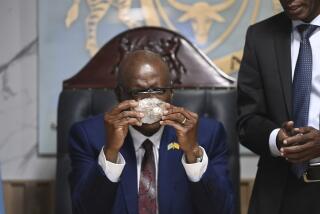Report: Congo rebels smuggling out $500 million a year in gold

M23 rebels in the lawless eastern reaches of the Democratic Republic of Congo have built alliances with local gangs to gain control of lucrative gold mines and smuggle out $500 million a year of the precious metal to finance their brutal attacks, a Washington-based human rights group reported Thursday.
Despite M23 leader Bosco Ntaganda’s surrender to war crimes investigators in The Hague this year, his co-commander has succeeded in reviving a brisk trade in “conflict minerals,” according to the report by Enough, which bills its mission as ending genocide and crimes against humanity.
De facto M23 commander Sultani Makenga has joined forces with armed groups -- including some rivals -- in Congo’s mineral-rich east, from which they smuggle out gold through Uganda and Burundi for sale to jewelers in the United Arab Emirates, Enough reported in “Striking Gold.”
“Gold is now the most important conflict mineral in eastern Congo, with at least 12 tons worth roughly $500 million smuggled out of the east every year,” says the report, written by Enough’s Ruben de Koning.
The rebels’ other main source of income, trade of the “3T minerals” of tin, tungsten and tantalum, has been significantly reduced by the U.S. Dodd-Frank financial regulation law, the report said.
But gold traders have been able to evade international sanctions by simply changing the names of their blacklisted companies, the report said. It named four exporters accused by United Nations investigators of violating the ban on trade in valuable resources used to bankroll violence. The report urges the U.N. Security Council to take action to prevent further flouting of sanctions.
The M23 rebels take their name from a failed May 23, 2009, peace agreement with the Congolese government under which they rejoined the national army. But they launched another rebellion last year. The rebels are reportedly aided by Rwanda and now control several key border crossings that allow them to evade detection when moving prohibited precious metals out of the country, the report says.
An M23 spokesman, Vianney Kazarama, was contacted by the Associated Press and asked about Enough’s allegations. Kazarama said the accusations were baseless and denied that Makenga had ever trafficked in minerals, AP reported from Dakar, Senegal.
ALSO:Malala Yousafzai wins EU human rights prize
Obama’s absence at Asia-Pacific summits lets China dominate
How the West can fight terrorism without provoking more of it
Twitter: @cjwilliamslat
More to Read
Sign up for Essential California
The most important California stories and recommendations in your inbox every morning.
You may occasionally receive promotional content from the Los Angeles Times.











